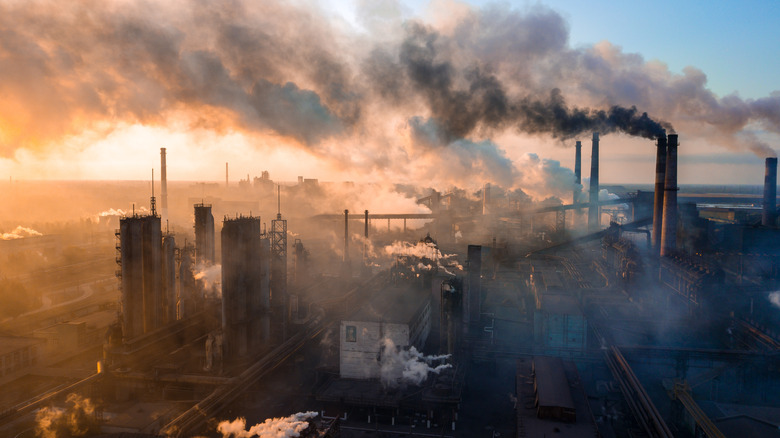Does Air Pollution Worsen COVID-19 Outcomes?
Hazardous air pollutants are detrimental to lung health and can contribute to serious health problems (e.g. heart attack, high blood pressure, and diabetes). According to the Harvard T.H. Chan School of Public Health, these medical conditions can also increase the severity of a COVID-19 infection. However, new research is examining the direct role that air pollution might play when it comes to the severity of COVID-19 outcomes, shedding light on the importance of healthy air.
In 2020, Environmental Research published a study examining the mortality rate from COVID-19 and constant exposure to dangerous air pollutants in the U.S. The findings suggested that each increase in respiratory hazard index (which refers to the level of harmful air pollutants) increases the likelihood of death from COVID-19 by 9%. The American Lung Association points out that when the air pollution index increases, it worsens COVID-19 outcomes because the hazardous air brings respiratory stress, which is then exacerbated by COVID-19 symptoms.
On a related note, air pollution isn't just a problem in the U.S. One 2020 study found similar findings on a global scale, explaining that long-term exposure to air pollutants may play a role in around 15% of deaths from COVID-19 worldwide. These pollutants come from a range of sources such as coal-fired power plants, household products, vehicles, wildfires, fossil fuels, and more (via American Lung Association).
How does particle pollution and nitrogen oxide affect COVID-19?
For air to be considered healthy, AirNow shares the air quality index should ideally have a value between 0-50, but air quality can be acceptable up to 100. Anything over those numbers affects the air quality, and air pollution may pose a risk. At the top of the list of air pollutants lies nitrogen dioxide (NO2) as well as particle pollution, specifically PM 2.5 and PM10. According to the U.S. News & World Report, these are often produced by traffic and industrial burning.
Emerging research published in the American Journal of Respiratory and Critical Care Medicine shares that exposure to NO2 and PM 2.5 increases the severity and mortality of COVID-19. Study co-author Zhanghua Chen tells U.S. News & World Report, "Our research demonstrated that one-year average exposure to PM2.5 translated to a 20-30% increase in the risk of hospitalization, intensive respiratory support and ICU admissions from COVID-19. Exposure to NO2 for one month carried an increased risk of 12-18%."
These findings were similar to those of a 2020 study that claimed that a reduction in air pollution, especially in urban areas with historically high levels of NO2, could have prevented over 14,000 COVID-19-related deaths by July 2020. U.S. News & World Report shares that reducing exposure to air pollution may be beneficial to protecting lung health.


